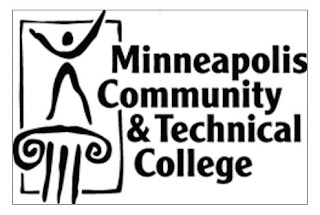BLOOMINGTON, Ind. -- Indiana University Bloomington will remember Martin Luther King Jr. and celebrate his legacy with activities beginning Thursday (Jan. 13) and running through Jan. 21.
Highlights will include the presentation on Sunday (Jan. 16) of an original, one-woman play by actress and playwright E.P. McKnight, entitled "I Question America," which chronicles the life of civil rights activist Fannie Lou Hamer.
The university also will help to present the Bloomington community's celebration on Jan. 17, which will feature as keynote speaker Sonia Sanchez, a poet, activist and international lecturer on black culture and literature, women's liberation, peace and racial justice. The theme for IU Bloomington's celebration is "Sustaining the Legacy of Dr. Martin Luther King Jr."
Other IU events include a day of activities for elementary school children at the IU School of Education, an interfaith prayer service, a leadership breakfast, a unity summit and a series of films that will be presented in campus cultural centers and residence halls. With the exception of the breakfast, all IU events celebrating King's life are free and open to the public.
The IU Office of the Vice President for Diversity, Equity and Multicultural Affairs and the MLK Jr. Day Celebration Planning Committee are coordinating many events. They are working closely with Residential Programs and Services, the Kelley School of Business and the IU schools of education, journalism and optometry and the sociology department in the IU College of Arts and Sciences.
E.P. McKnight's "I Question America"
McKnight's performance of "I Question America" will begin at 3 p.m. on Jan. 16 in Whittenberger Auditorium of the Indiana Memorial Union, 900 E. Seventh St.
McKnight, a graduate of Fordham University and author of Words "N" Action, a book of inspirational and motivational poetry, wrote the play to help others become more familiar with Hamer's role in history. Her on-screen credits include roles in "Once And Again," "ER," "Passions" and "Another World" and "All My Children."
Inspired by organizers from the Southern Christian Leadership Conference, Hamer began to strive for equal rights in 1962 and later co-founded the Mississippi Freedom Democratic Party. She represented the organization in 1964 at the National Democratic Convention and challenged Mississippi's all-white and anti-civil rights delegation.
"If the Freedom Democratic Party is not seated now, I question America," Hamer said in a nationally televised speech. "Is this America? The land of the free and the home of the brave? Where we have to sleep with our telephones off the hook, because our lives be threatened daily?"
Hamer also helped to organize the "Freedom Summer" in Mississippi that summer and was seated as a member of Mississippi's legitimate delegation to the Democratic National Convention in 1968 and again in 1972.
In a 1970 lawsuit, Hamer v. Sunflower County, she demanded school desegregation in her local community. She ran unsuccessfully for the Mississippi state Senate in 1971 and published To Praise Our Bridges: An Autobiography in 1967. Hamer died in 1977.
McKnight also will speak at a reception that follows her performance, which is free and open to the public.
"Jazz Service for Peace"
Keith McCutchen, director of the IU African American Choral Ensemble, is coordinating a program, "Jazz Service for Peace," on Sunday (Jan. 16). The program will begin at 7 p.m. at the Unitarian Universalist Church of Bloomington, 2120 N. Fee Lane. The service will allow the Bloomington community to experience the universal power of jazz music interwoven with the words of King's principles of freedom, community, non-violence and cultural exchange. The performance will feature local church and school choirs and other community organizations, a jazz quintet and the African American Choral Ensemble, conducted by McCutchen.
The musical service will feature the jazz arrangements by Duke Ellington, John Coltrane, Hall Johnson and McCutchen. The musical also will feature the reading of King's Opening Address at the 1964 Berlin Jazz Festival along with other readings and ecumenical prayers for peace.
Sonia Sanchez
Sanchez is a poet, playwright and educator noted for her black activism. She received a bachelor of arts degree in political science from Hunter College in 1955 and briefly studied writing at New York University. In the 1960s, Sanchez was introduced to the political activism of the times and published poetry in such journals as The Liberator, the Journal of Black Poetry, Black Dialogue and Negro Digest and has written more than 16 books and plays.
She is the recipient of numerous awards, including the National Endowment for the Arts Lucretia Mott Award in 1984, the Outstanding Arts Award from the Pennsylvania Coalition of 100 Black Women, the Community Service Award from the National Black Caucus of State Legislators; the Peace and Freedom Award from Women International League for Peace and Freedom for 1989 and a Pew Fellowship in the Arts for 1992-93.
The Jan. 17 community event, which also will feature musical performances, will begin at 7 p.m. in the Buskirk-Chumley Theater, 114 E. Kirkwood Ave., and is free and open to the public. For more information, go to www.bloomington.in.gov/, or contact Craig Brenner at 812-349-3471.
Other events centered around the holiday include:
An annual Leadership Breakfast that brings the IU community together to focus on King's ideals, beginning at 8 a.m. on Jan. 17 in Alumni Hall of the Indiana Memorial Union. Winners of IU's MLK Day essay contest and Building Bridges Award will be announced and receive special recognition. Attendance is by invitation only and an RSVP is required to mlkjr@indiana.edu.
An Interfaith Prayer Service scheduled for 10:30 a.m. to 11:30 a.m., Jan. 17, in Whittenberger Auditorium of the Indiana Memorial Union. The program celebrates and increases awareness of various faith traditions through reflective prayers, music and the spoken word.
A Unity Summit in the Willkie Auditorium, 150 N. Rose Ave., Jan. 17, noon to 3:30 p.m. The event brings IU students together for a program that promotes civil dialogue and explores ways to improve the campus climate for all IU students.
The IU Bloomington School of Education's Eighth Annual King Activity Day with Children, Jan. 17, in the School of Education Atrium. Elementary-age students from the community will participate in a variety of educational activities, 9 a.m. to 3 p.m. For more information or to volunteer, contact Leana McClain at 812-856-8160 or lemcclai@indiana.edu.
IU's Race and Ethnic Relations Committee will screen the documentary, "Citizen King," at 6:30 p.m. on Jan. 17 at La Casa Latino Cultural Center, 715 E. Seventh St. Fabio Rojas, IU associate professor of sociology, will moderate a discussion afterwards.
A discussion will follow a presentation of King's "I Have a Dream" speech at 7 p.m. on Thursday (Jan. 13) at the Kelley School of Business.
"Speak to Me: Open Mike Night" will begin at 7 p.m. on Thursday at the Union Street Center Auditorium.
At 7 p.m. Sunday in Ernie Pyle Hall, visiting journalism professor Marty Pieratt will discuss his book, First Black Red: The Story of Chuck Harmon, the First African American to Play Baseball for the Cincinnati Reds. The book is a biography of Chuck Harmon, a Washington, Ind., native and one of 12 children who was the first African-American to suit up for the Reds on April 17, 1954.
A series of films which deal with civil and human rights, including "A Time to Kill," "Crash," "Remember the Titans," "Invictus, "Freedom Writer" and "Gran Torino" will be shown across campus. For details, go to www.indiana.edu/~mlkjr
"Have We Lost Sight of Dr. Martin Luther King's Dream?," a luncheon discussion at noon on Jan. 21 at the Asian Culture Center, 807 E. 10th St.
Complete information about all IU King Day events is available at a special Web site at www.indiana.edu/~mlkjr/.
FOR IMMEDIATE RELEASE Jan. 10, 2011





































